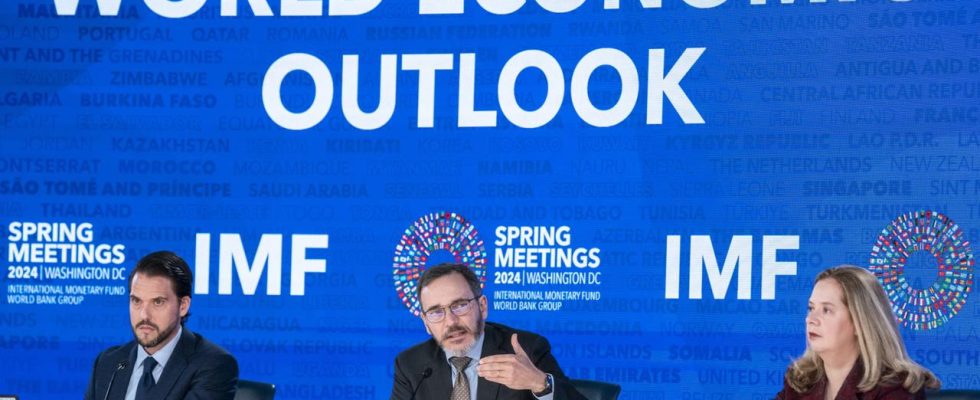While things are looking up in the rest of the world, the German economy will only grow by 0.2 percent – according to the International Monetary Fund forecast. There are two major challenges for the country.
It is a further setback for economic development in Germany: the International Monetary Fund is only predicting growth of 0.2 percent. In January, the IMF forecast 0.5 percent growth for the German economy.
0.2 percent – that is the weakest growth forecast within the group of seven leading western industrialized countries (G7). The Monetary Fund cites the continued weak consumer sentiment in Germany as one of the main reasons. The IMF emphasizes the aging population as a long-term problem. After all, the monetary fund is predicting growth of 1.3 percent for Germany in 2025.
Good prospects for the global economy
The outlook for the global economy as a whole looks better. “The global economy is showing remarkable resilience, with continued stable growth and falling inflation,” said the Monetary Fund’s chief economist, Pierre-Olivier Gourinchas.
The IMF predicts global growth of 3.2 percent this year and cites, among other things, the robust development in the USA and some emerging countries as the reason. The IMF has raised the global growth forecast slightly compared to January.
Inflation and a lack of climate protection are concerns
Despite some gloomy predictions to the contrary, the world has been spared from a recession, emphasizes the chief economist of the Monetary Fund, but also speaks of lasting problems. “The inflation trends are encouraging, but we are not there yet,” said Gourinchas.
The main goal must remain to permanently reduce inflation. Another is to improve international cooperation, for example in climate protection: “Reducing CO2 emissions is compatible with growth,” emphasizes Gourinchas. “But pollutant emissions are still rising. More needs to be done – and quickly.”
Aging population as a problem
IMF head Kristalina Georgieva also emphasized the problem of an aging population in most industrialized countries in her speech at the start of the spring meeting. In order to keep the proportion of the working population high and an economy robust, immigration is needed, among other things, according to the IMF boss.
The Bulgarian will remain head of the IMF for another five years. Although there was occasional criticism of the former EU Commissioner, France and Germany, as well as the USA, also spoke out in favor of a second term in office for the 70-year-old. The top job at the Monetary Fund is traditionally filled from Europe, and the top job at the World Bank is traditionally filled from the USA.
Reform of the IMF as an issue
Federal Finance Minister Christian Lindner and Development Minister Svenja Schulze will also take part in the spring meeting in Washington later this week.
Two of many other topics: How can the two often cumbersome institutions, the IMF and the World Bank, be reformed? And: How can we prevent the poorest countries in the world from becoming increasingly left behind? With a view to the recent Covid pandemic and the wars in Ukraine and the Middle East, IMF chief Georgieva said: “We continue to live in a world in which we have to expect the unexpected.”

